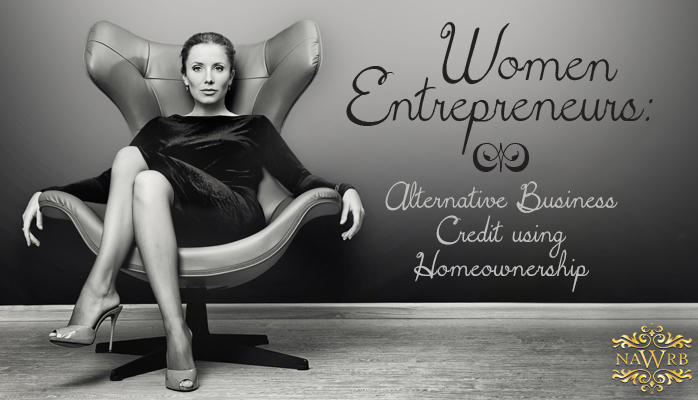It’s undeniable that women entrepreneurs hold tremendous potential for success and the American economy. Entrepreneurial women are starting over 1,100 businesses a day and women-owned businesses have increased 27.5 percent from just 2007 to 2012, currently numbering at 10 million, according to the Census Bureau.
However, this tremendous growth is eclipsed by the dire conditions with which women-owned businesses are faced. Here are two stark truths: 91 percent of women-owned businesses have no employees other than the owner and 88 percent of women-owned firms do not surpass the $100,000 revenue threshold.
The high majority of women-owned businesses are small businesses, and the U.S. Small Business Administration (SBA) Office of Advocacy reveals that of businesses started in 2014, a mere 9 percent survived until 2015. Compounded by the fact that women receive only 16 percent of conventional small business loans, 4.4 percent of the total dollar value of all small business loans, according to a 2014 Senate Committee report, this makes it extremely difficult for women entrepreneurs to make their businesses successes.
Access to capital is a serious issue for women-owned businesses. The National Women’s Business Council (NWBC) reports:
- Women start businesses with half as much capital as men ($75,000 vs. $135,000)
- Women receive .1 percent of venture capital financing
- Only 5.5 percent of women-owned businesses utilize business loans from banks to begin or acquire their business
- 5 percent of women-owned businesses are launched through the use of personal savings
Pervasive gender imbalances like these severely hinder the capabilities of women entrepreneurs. By raising women’s access to capital, women become increasingly equipped to enter the business arena with security and succeed.
Women’s progress has extensive effects and its ripples are evident in all generations, from college students to seasoned professionals. Women are advancing in their fields, increasing their wealth and simultaneously raising their capability to become homeowners.
The significance of homeownership cannot be overstated. Owning a home means achieving the American dream and having a place that to call your own; it builds wealth and secures your professional progress. For women, who face an imbalanced professional field and work hard for less money, becoming a homeowner is powerful.
How can we level the playing field for women entrepreneurs?
Women must be able to utilize personal successes profitably in the business arena. In situations when they are denied loans, women entrepreneurs should be able to leverage achievements, like their status as homeowners and wealth, to obtain much needed business loans.
It’s all a cycle. The professional arena needs to be balanced so women are given equal opportunity to succeed. With success, women will be able to lead better lives through accomplishments such as homeownership, which will in turn beneficially poise women for business success.
But what happens when successful women don’t appear to be so on paper?
We have seen how lack of accountability has caused a downturn on the housing market, but little has been said about the effect the recession had on financing for small businesses. With the impact of losing home equity, and in a high number of cases the home entirely, small business owners were devastatingly impacted.
Damaged credit has left hopeful homebuyers with bad FICO scores and business owners incapable of obtaining loans. Even though women are able to afford a home or repay a business loan, systematic roadblocks prevent them from being recognized as reliable consumers.
The Federal Deposit Insurance Corporation (FDIC) reports that in 2013, 7.7 percent of American households (17 million adults) were unbanked and 20 percent (51 million adults) were underbanked. This amounts to almost 70 million Americans who do not have full access to credit.
“We have millions of potential homebuyers, car buyers, and just plain consumers who do not qualify for financing or even credit cards because they don’t fit within traditional credit definitions,” stated Rick Sharga, executive vice president at Auction.com, about an alternative credit scoring system being developed by FICO.
“Many of these individuals are perfectly good credit risks and have good incomes, but until this point they’ve been unable to get the benefit of their prompt payments and prudent financial management,” Sharga continued. “There’s an unfairness to this, which can be reduced with the use of alternative credit scoring, and today’s Big Data solutions make the data needed to create this scoring readily available.”
A change needs to be made to inflexible, inaccurate practices used to determine if a person is qualified for a mortgage or loan. The significant limitations to which capable consumers are being subjected are unjust. Homebuyers and professionals should not be held back from experiencing important life transitions simply because an antiquated system determines their credit score is not good enough.
Over the decades there have been many creative financing techniques, especially for residential purchases. Innovation in lending is needed now more than ever. Women must be given an equal chance to succeed, personally and professionally. Homeownership and professional success go hand in hand; when a score on a sheet of paper prevents women from achieving either, alternative methods should allow them to leverage one in order to achieve the other.

 Login
Login

